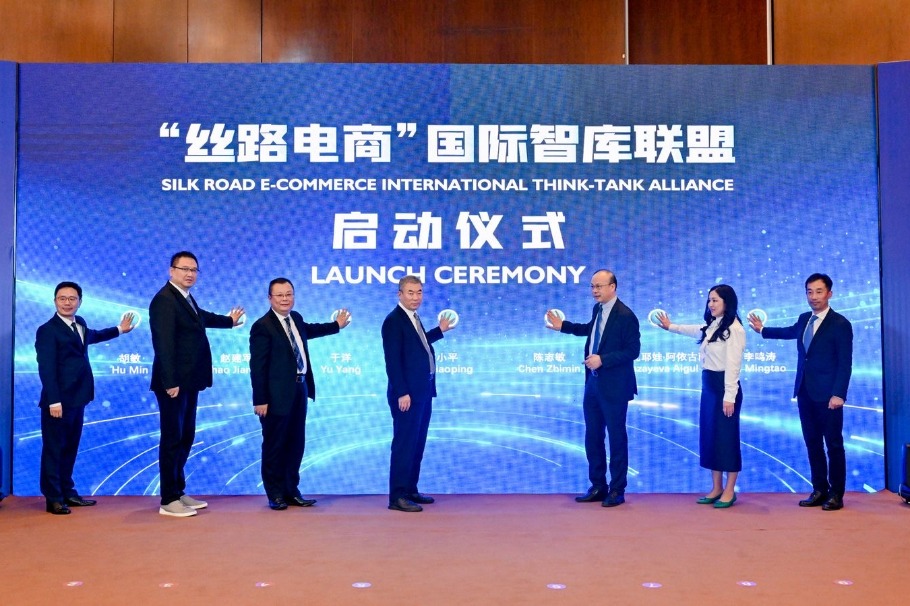
Business opportunities could be explored in the development of Silk Road e-commerce, which would help meet the increasingly sophisticated demands of Chinese consumers and promote the development of digital economies in countries participating in the Belt and Road Initiative, experts and business executives said on Friday.
They made the remarks on Friday at the Silk Road E-Commerce Think Tank Forum, co-hosted by the Belt and Road Institute of Global Governance at Fudan University and Shanghai's Yangpu District Commission of Commerce.
Chen Wenling, chief economist at the China Center for International Economic Exchanges, said trade between China and Russia exceeded $240 billion last year, while trade between Central Asian countries was less than $100 billion, suggesting there is more room for growth.

Chen Wenling, chief economist at the China Center for International Economic Exchanges; [Photo provided to chinadaily.com.cn]
As she noted, efforts are being made in this regard. More automakers and power grid operators are coming to Belt and Road countries, especially Xinjiang, which is geographically close to Central Asian countries. Further experimentation in the e-commerce sector can further boost growth, she said.
Faruk Khakimov, head of the Uzbekistan Development Strategy Center, said that the digital economy will account for only 2.77% of the country's economy in 2022. Its small size can also be interpreted as a growth prospect. Therefore, Uzbekistan can work closely with countries such as China to promote significant growth of the digital economy, he said. Zhao Quan, senior trade policy adviser in the Market Development Division at the United Nations International Trade Center, said digital trade can significantly remove trade barriers and lower costs. However, developing countries often lack the necessary infrastructure, regulatory frameworks, ecosystems, skills and human resources. The Belt and Road Initiative is playing a positive role in helping many countries build power grids, communications and transportation networks and increase the efficiency of trade, he said.

Freshippo, a grocery and fresh produce retail chain owned by e-commerce giant Alibaba, imported around 200 types of products from 29 countries in the Silk Road e-commerce zone in 2023, with annual purchases of more than 3 billion yuan ($410 million).
Chen Dan, deputy director of the Freshippo Industrial Research Institute, said such imports could meet Chinese consumers' growing demand for high-quality products. Online platforms like Freshippo can serve as a first stop for imports looking to enter the Chinese market, she said.
The Silk Road E-Commerce International Think Tank Alliance was launched during the forum, with its founding members including more than 30 enterprises and professional institutions from home and abroad, such as China Academy of International Trade and Economic Cooperation, Fudan University, online service platform Meituan, online discount retailer PDD Holdings and QazTrade Trade Policy Development Center Joint Stock Company of the Republic of Kazakhstan.
This year, the alliance plans to hold 36 workshops and forums to explore new trends in Chinese companies' overseas expansion, data flows and international cooperation.
In October, China's State Council (equivalent to the cabinet) approved the establishment of a pioneering cooperation zone in Shanghai to promote Silk Road e-commerce. So far, three institutional innovation policies have been promoted across the Yangtze River Delta region, including cross-border mutual customs clearance, first piloted in Shanghai, cross-border e-invoice interoperability, and a pilot program for cross-border commodity tracking.
In the first three months of this year, Shanghai's total e-commerce volume reached 897.9 billion yuan, up 12.7 percent from the same period last year.


